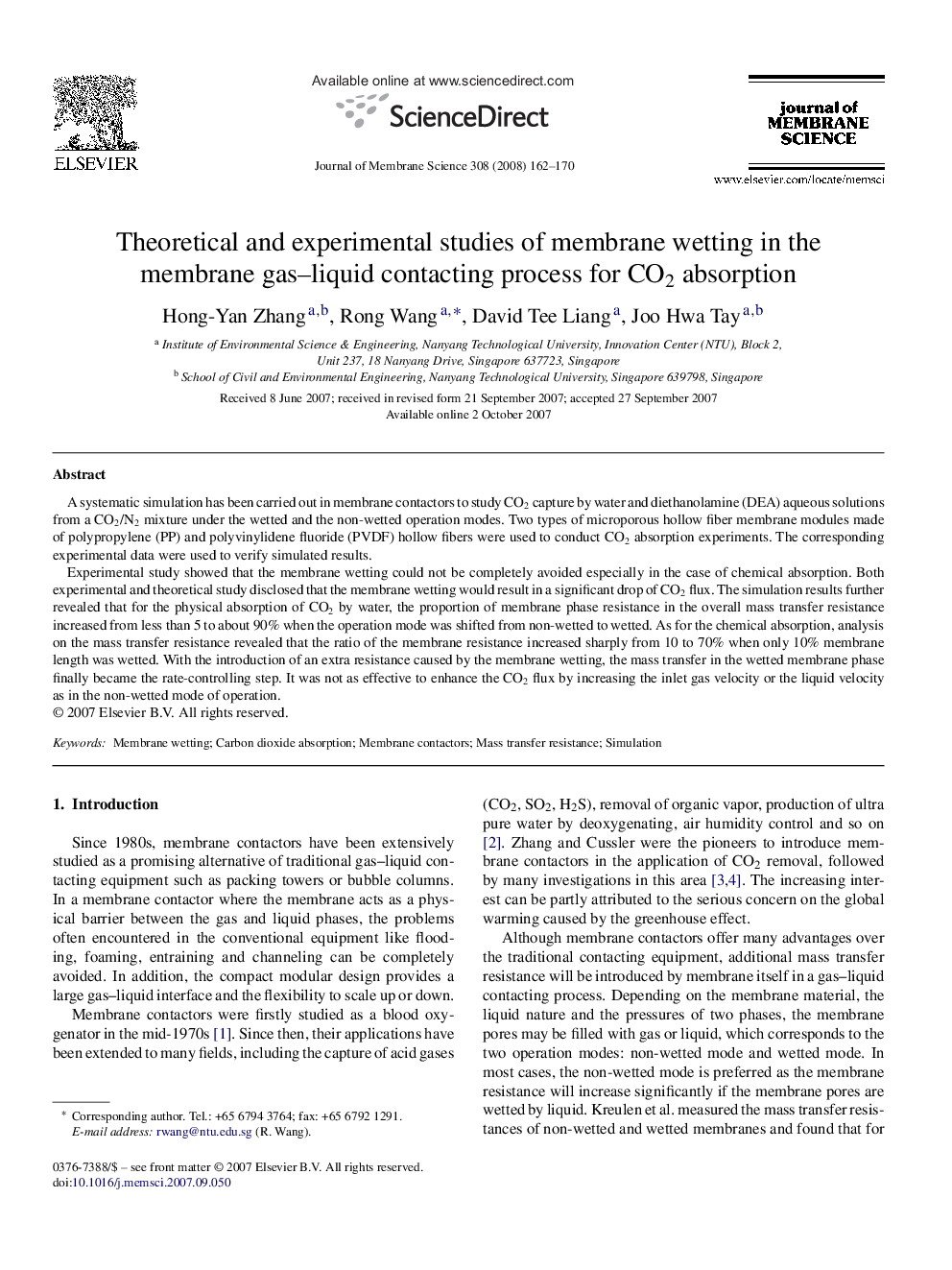| Article ID | Journal | Published Year | Pages | File Type |
|---|---|---|---|---|
| 638224 | Journal of Membrane Science | 2008 | 9 Pages |
Abstract
Experimental study showed that the membrane wetting could not be completely avoided especially in the case of chemical absorption. Both experimental and theoretical study disclosed that the membrane wetting would result in a significant drop of CO2 flux. The simulation results further revealed that for the physical absorption of CO2 by water, the proportion of membrane phase resistance in the overall mass transfer resistance increased from less than 5 to about 90% when the operation mode was shifted from non-wetted to wetted. As for the chemical absorption, analysis on the mass transfer resistance revealed that the ratio of the membrane resistance increased sharply from 10 to 70% when only 10% membrane length was wetted. With the introduction of an extra resistance caused by the membrane wetting, the mass transfer in the wetted membrane phase finally became the rate-controlling step. It was not as effective to enhance the CO2 flux by increasing the inlet gas velocity or the liquid velocity as in the non-wetted mode of operation.
Keywords
Related Topics
Physical Sciences and Engineering
Chemical Engineering
Filtration and Separation
Authors
Hong-Yan Zhang, Rong Wang, David Tee Liang, Joo Hwa Tay,
